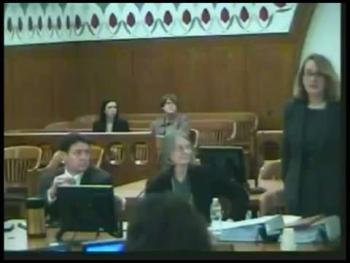Case Summary: 11-cv-10852
On May 13, 2011, plaintiff David House filed a complaint for violation of his civil rights in the United States District Court for the District of Massachusetts against Janet Napolitano, Secretary of the U.S. Department of Homeland Security, Alan Bersin, Commissioner of U.S. Customs and Border Protection, and John T. Morton, Director of U.S. Immigration and Customs Enforcement. The complaint alleges that plaintiff's constitutional rights under the First and Fourth Amendments were violated by the prolonged seizure of his laptop computer and other electronic devises and the review, copying, retention, and dissemination of their contents. The complaint also alleges the plaintiff's First Amendment right of associational privacy was violated by the review, retention, and disclosure of information identifying members and supports of a political organization, the Bradley Manning Support Network.
On July 28, 2011, defendants filed a motion to dismiss plaintiff's complaint or, in the alternative for summary judgment. The government argued that plaintiff's Fourth Amendment rights were not violated because the search and seizure of plaintiff's items was a proper routine search and inspection of closed containers at the border, which does not require individualized suspicion or a warrant. The government also argued that plaintiff's First Amendment claims should be dismissed because the complaint fails to allege facts that the government's conduct will materially interfere with lawful activities and association. The court heard oral argument on defendants' motion on December 20, 2011. On March 28, 2012, the court issued an order denying defendants' motion to dismiss.
Case Highlights
- Complaint filed 5/13/2011 [Doc # 1]
- Motion to Dismiss or in the Alternative for Summary Judgment filed 7/28/2011 [Doc ## 10-11]
- Opposition filed 9/21/2011 [Doc ## 15-16]
- Reply filed 10/28/2011 [Doc # 20]
- Sur-reply filed 12/6/2011 [Doc # 22]
- Hearing on 12/20/2011
Case-related documents, including those referenced above, are available via the Public Access to Court Electronic Records (PACER) service. For more information, visit Pacer.gov.

